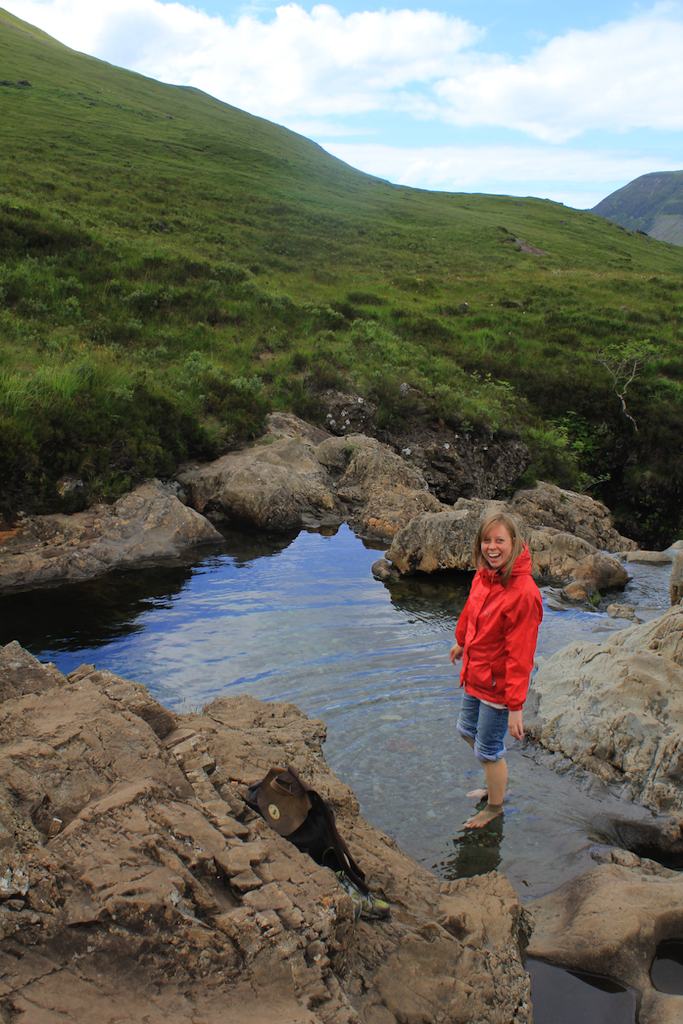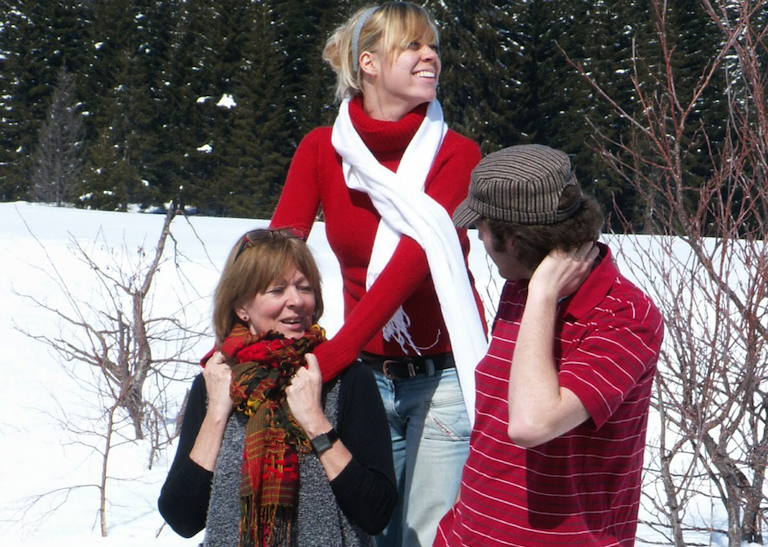Nina with family in Switzerland.
“Where are you from?”
This question is often asked by new acquaintances, and it is not always easy to answer. To me, it often feels like I am being thrown a Zen Buddhist koan! I was born and grew up in Switzerland. Because, over there, citizenship is not automatically granted upon birth, I inherited my parents’ nationalities. I therefore have a British and a Swedish passport.
“Where are you from?”
According to my High School teacher, I spoke French with too many “Anglicism’s”. At the same time, my mum and her side of the family would tease me for my (at the time) Jamaican English accent which came from who-knows-where. As a girl and then a young woman in Switzerland, I knew that people who asked me where I was from were noticing my un-Swissness. So I always gave the same, standard answer: “I am English and Swedish”.
When I eventually moved to Scotland to undertake a degree in English Literature, I met a lot of new people; some Scottish, some English, others from all over the world.
“Where are you from?”
And just like that, my standard, well-rehearsed answer was no longer relevant. Because if you are Scottish or English, you will notice that I have an unusual English accent. And if you are English or Swedish, you will know that I have no idea what it is like to grow up in England, or Sweden. And perhaps most importantly, my standard answer did not account for the Swiss part in me. A part that, overnight, became key to defining myself.
“Where are you from?”
I quickly came up with a new standard answer. I would say: “I grew up in Switzerland, but I am English and Swedish”. People often wonder why I don’t just say I am Swiss. After all, I spent my most formative years there. But isn’t so easy, never having considering myself Swiss as a child.

Many people share this conundrum and it fascinates me how different our experiences and approaches are. I have a friend who was born to Indian parents in Hong Kong, where he grew up and was educated. He explains that he identifies as a Hong Konger, while his brother identifies with the Indian aspect of his upbringing. What is it that leads us to feel closer to some cultures than others? To me, this question is compounded by the fact that, despite having grown up in Switzerland, I immediately felt more at home in Scotland than ever before. And I continue to call it home to this day.
“Where are you from?”
The beauty is that there is no right or wrong answer here. I believe that the answer lies in how we connect to our values and to the people who surround us. Having lived in Switzerland, Scotland, Hong Kong, and now the USA, I recognize that I am more at home when surrounded by people that tend to be more in line with my values. Here I am not talking about the goals and actions of governments, but of the values of average people as they live their day-to-day lives.
My friend in Hong Kong married a partner of his choice, while his brother followed in his Indian parents’ footsteps and opted for an arranged marriage. Perhaps my friend values freedom and choice, while his brother values tradition. In my experience of Switzerland, its people are efficient, professional, balanced, traditional. These are all good, worthy values to have. They simply are not the values that I would favor over others. I have chosen Scotland as my home because its people tend to be giving, humble, amusing, and these are qualities that I hold as important.
“Where are you from?”
Now that I have moved to the US, my standard answer no longer fits: “I grew up in Switzerland, but I am English and Swedish” does not account for the Scottish part in me. Life’s lessons in impermanence and transience carry on.


I can relate to this! I’ve had to deal with the same questions. Thanks.